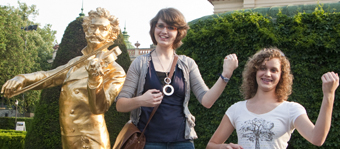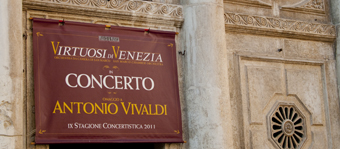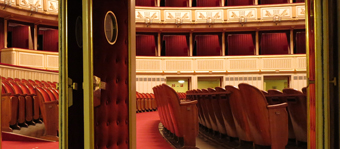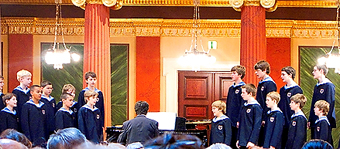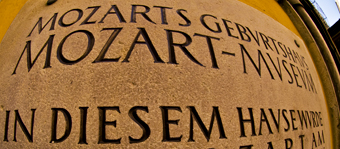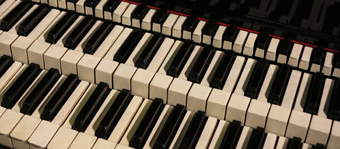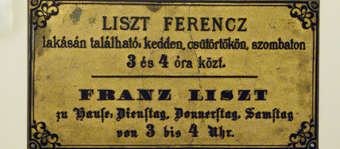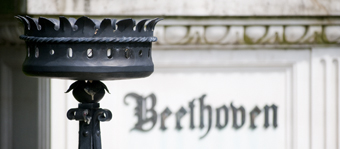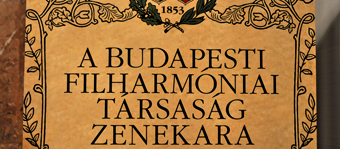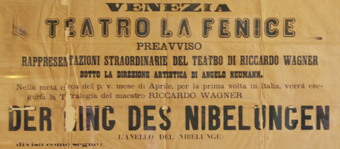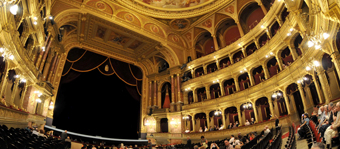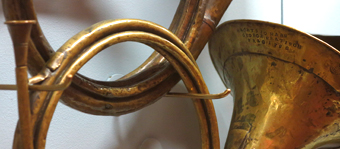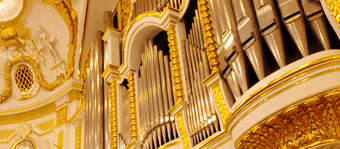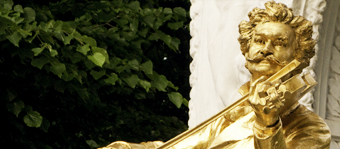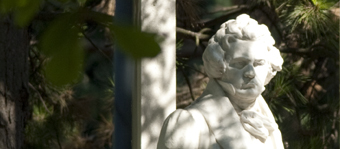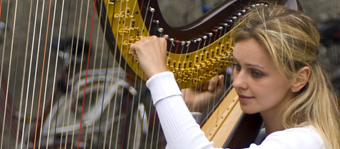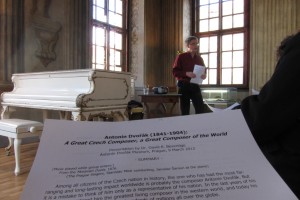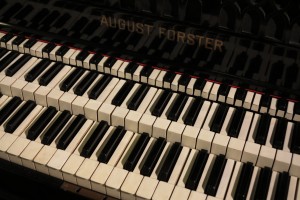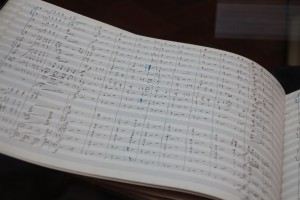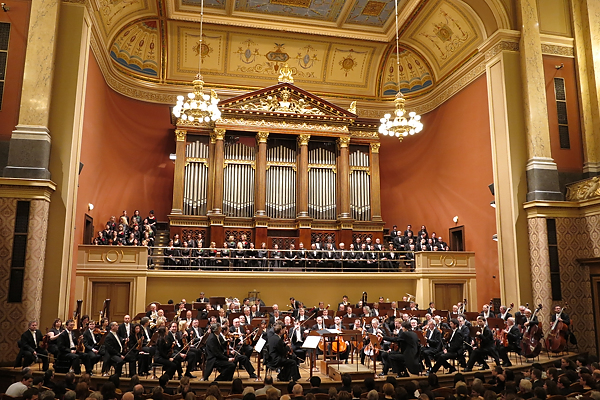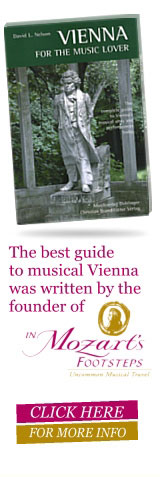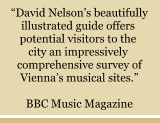Antonin Dvorak is the best-known Czech composer. We started our Friday in Prague at the Dvorak Museum with a guest lecture by Dr. David Beveridge, a Dvorak scholar and a longtime friend of mine. The museum had been undergoing some renovations and was actually closed, but Dr. Beveridge was able to have it opened just for the UNCG group. Special things like this often happen on our tips.
Dr. Beveridge talked about the life and music of Dvorak, then discussed “Jakobin” the opera (by Dvorak) that we would attend the following night. It was very helpful hearing an insightful lecture about this little-known Czech opera.
After taking the number 22 tram to the other side of the river, we visited the Czech Museum of Music History where they had a very good temporary Dvorak exhibition and a permanent exhibition of musical instruments. Some of these instruments very unusual: quarter-tone pianos, clarinets and brass instruments; a chromatic harp; very rare double-belled brass instruments.
We attended a concert by the Czech Philharmonic Orchestra in the evening. I had never heard the orchestra in concert, but knew that they were a fine ensemble. Hearing them live was a treat – they played extremely well, one of the finest orchestras I think I have ever heard.
The first half of the concert featured a young Czech violinist, Josef Spacek, Jr,. He played Janacek and Ravel, and was terrific. As an encore, he performed “Meditation” from Massanet’s “Thais” in an arrangement for violin and harp. The audience was mesmerized.
Following intermission, the orchestra and chorus performed the complete ballet music from Ravel’s “Daphnis and Chloe”. It has some wonderful sounds, and some of the woodwind and brass soloists played exceptionally well.
The concert hall is the Rudolfinium, with a beautiful turn-of-the-century design. I took a couple of pictures before being requested to put my camera away.
